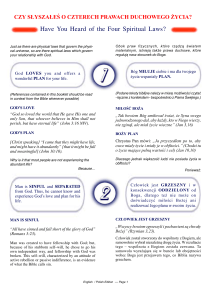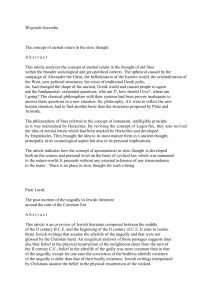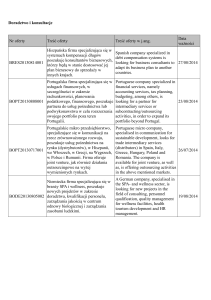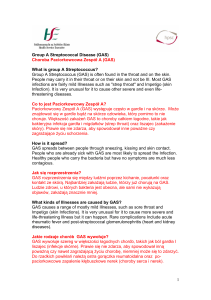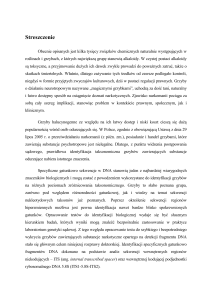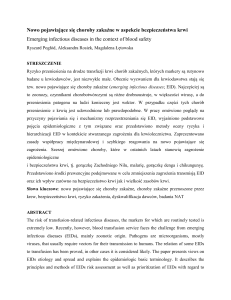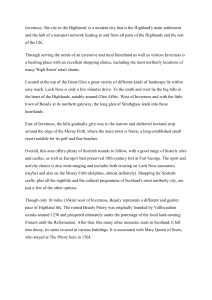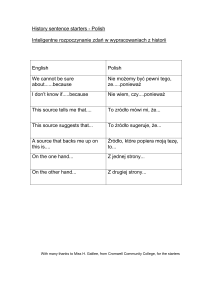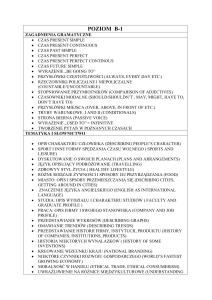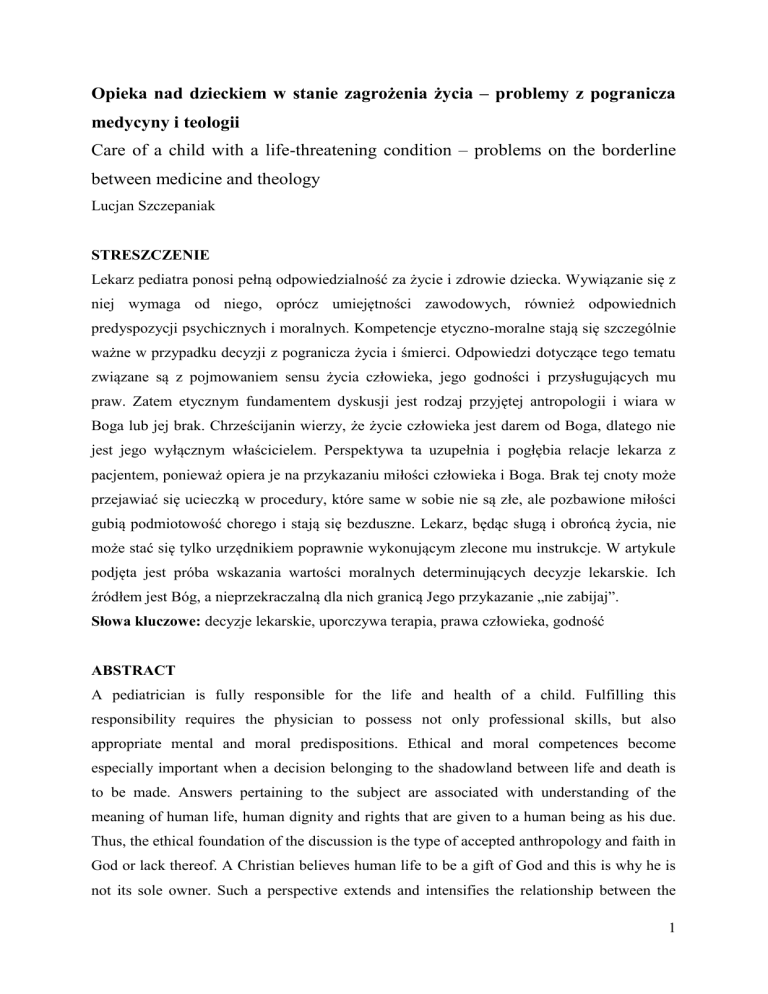
Opieka nad dzieckiem w stanie zagrożenia życia ‒ problemy z pogranicza
medycyny i teologii
Care of a child with a life-threatening condition – problems on the borderline
between medicine and theology
Lucjan Szczepaniak
STRESZCZENIE
Lekarz pediatra ponosi pełną odpowiedzialność za życie i zdrowie dziecka. Wywiązanie się z
niej wymaga od niego, oprócz umiejętności zawodowych, również odpowiednich
predyspozycji psychicznych i moralnych. Kompetencje etyczno-moralne stają się szczególnie
ważne w przypadku decyzji z pogranicza życia i śmierci. Odpowiedzi dotyczące tego tematu
związane są z pojmowaniem sensu życia człowieka, jego godności i przysługujących mu
praw. Zatem etycznym fundamentem dyskusji jest rodzaj przyjętej antropologii i wiara w
Boga lub jej brak. Chrześcijanin wierzy, że życie człowieka jest darem od Boga, dlatego nie
jest jego wyłącznym właścicielem. Perspektywa ta uzupełnia i pogłębia relacje lekarza z
pacjentem, ponieważ opiera je na przykazaniu miłości człowieka i Boga. Brak tej cnoty może
przejawiać się ucieczką w procedury, które same w sobie nie są złe, ale pozbawione miłości
gubią podmiotowość chorego i stają się bezduszne. Lekarz, będąc sługą i obrońcą życia, nie
może stać się tylko urzędnikiem poprawnie wykonującym zlecone mu instrukcje. W artykule
podjęta jest próba wskazania wartości moralnych determinujących decyzje lekarskie. Ich
źródłem jest Bóg, a nieprzekraczalną dla nich granicą Jego przykazanie „nie zabijaj”.
Słowa kluczowe: decyzje lekarskie, uporczywa terapia, prawa człowieka, godność
ABSTRACT
A pediatrician is fully responsible for the life and health of a child. Fulfilling this
responsibility requires the physician to possess not only professional skills, but also
appropriate mental and moral predispositions. Ethical and moral competences become
especially important when a decision belonging to the shadowland between life and death is
to be made. Answers pertaining to the subject are associated with understanding of the
meaning of human life, human dignity and rights that are given to a human being as his due.
Thus, the ethical foundation of the discussion is the type of accepted anthropology and faith in
God or lack thereof. A Christian believes human life to be a gift of God and this is why he is
not its sole owner. Such a perspective extends and intensifies the relationship between the
1
physician and the patient, since it builds such relations on the commandment of love of
another human being and love of God. An absence of such a virtue may be manifested by an
escape into procedures, which are not bad in and of itself, but - when devoid of love – cause a
loss of the patient's subjectivity and become callous. The physician ‒ a servant and defender
of life ‒ cannot merely become an official who adequately follows instructions he has been
given. The paper is an attempt at presenting moral values that determine medical decisions.
Their source lies in God and the barrier that cannot be crossed is His commandment "Thou
shalt not kill".
Key words: Medical decisions, Medical futility, Human rights, Dignity
2

